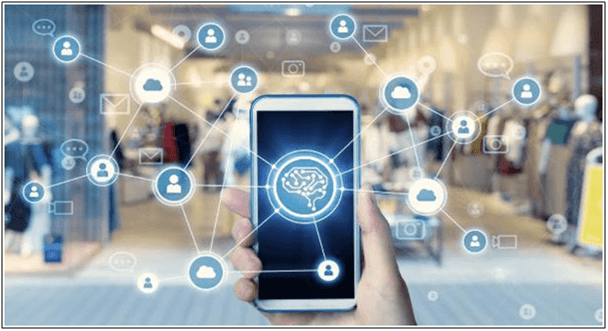Technology has been increasingly engulfing the world in recent years. It had played a big role in how people lived. The Internet was the beginning of the digital revolution in the 1980s followed by mobile technology, social media, big data, and cloud computing. Modern technology is constantly evolving particularly in the e-commerce sector. Many consumers will turn to eCommerce during the Covid pandemic when many nations and stores are on lockdown, to assist them with their everyday necessities and fulfillment needs. Amazon, JD.com, and other large corporations have made significant investments in digital technologies. This article discusses several cutting-edge technologies in the eCommerce sector.

Table of Contents
Augmented and Virtual Reality (AR/VR)
The logistics industry can operate more effectively by utilizing augmented and virtual reality. Despite the high startup costs for AR and VR, many companies are certain they will be able to cut costs and improve operational efficiency. The inability to try on products before buying is one of the main drawbacks of online shopping. As a result, they are unable to test the products; nevertheless, augmented reality could be able to help. Customers may virtually try on the products thanks to augmented reality technology without having to move from where they are. People can see a virtual representation of how a sofa would appear in their living space or how a certain pair of sunglasses will look on them. The shopping experience is more immersive thanks to virtual reality. It is projected that although it is not now widely used, this will have a big impact in the future. Virtual Reality headsets have been used with eCommerce because of their inexpensive cost. VR is frequently used to view homes, saving potential buyers from having to travel and that they do not like the place after all.

Artificial Intelligence (AI) Technology
Competitive enterprises currently utilize warehouse technology powered by AI to compete with other businesses for technological innovation. Natural language processing, robotics, computer vision, and most crucially machine learning (ML) are all examples of how AI benefits the warehouse. Algorithms are used by machine learning to make crucial and useful judgments for the warehouse. It analyzes the trend using sensor data and suggests essential measures such as quick inventory replenishment, route changes, and improved inventory storage. Smart eyewear technology integrates with some AI characteristics. Natural language processing provides voice selection through a headset, allowing users to operate it without using their hands and continue with other tasks. These wearables have cameras that can recognize barcodes using computer vision. Cameras are placed all over the warehouse to rapidly trace products in addition to employing commuter vision.
Digital Crypto Wallet
Blockchain stores data in what are referred to as “blocks”, much like a memory ram does. These are the balances that are kept at each location, a list of every transaction, and the person who has access to those funds. Bitcoin is not kept “in” a wallet. The wallet program enables users to interact with the balances kept on the blockchain where the coins are stored. The wallet not only keeps track of addresses but also lets users transfer money to other accounts and allow others to see how much money is being held.

Compared to dealing with cash, Bitcoin is much safer. Users are provided with the best level of protection because they do not need to input their passwords in front of other people. The only requirements are that they utilize both public and private transaction keys. When working with eCommerce organizations, there will be very little risk of essential client data being stolen. The development of technology can be used for bad purposes or to conduct crimes, where fraudsters use it to deceive people all over the world.

Cloud Computing Technology
The benefits of cloud computing include increased speed, visibility, agility, and scale. Businesses that embrace cloud computing benefit from reduced development costs and time. Decisions are made more quickly due to the quicker deployment of new applications and the flow of more information. When it comes to supply chain sustainability and accountability, cloud computing is essential. This data processing helps businesses adopt new technology more quickly, thereby minimizing environmental waste and improving resource efficiency. There are a number of cloud e-commerce platforms available including PaaS, IaaS and SaaS, which are the most popular and have the lowest resource requirements. Elastic Beanstalk, one of Amazon Web Services (AWS) major cloud computing services is a PaaS option. Online retailers can quickly construct and administer distinctive apps with this configuration without needing to understand or maintain infrastructure.
The full content is only visible to SIPMM members
Already a member? Please Login to continue reading.

